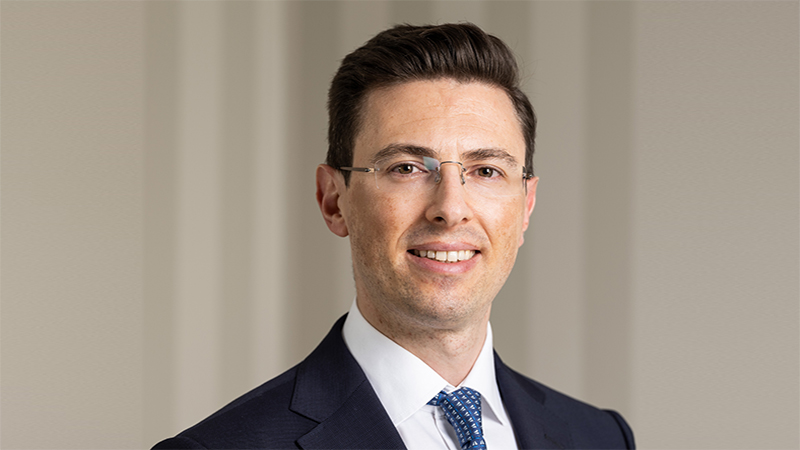How did you find your way into sustainable investing?
“I began my career in 2008 in London, first in the asset management division of Macquarie Bank then seven years as a sell side research analyst at Macquarie Bank and Exane BNP Paribas. Before joining J Safra Sarasin I was an investment analyst at an activist fund in Monaco.
“ESG was always an important topic over the course of my career. My decision to join J Safra Sarasin Sustainable Asset Management in 2020 was mainly driven by the firm’s deep ESG focus and strong in-house sustainability research.”
What is the broad strategy you have in place?
“The JSS Sustainable Equity – Green Planet fund invests in four major themes that support the green transitions. The four themes are: ecosystem protection, resource efficiency, smart mobility, and future energies.
“The fund is a global equity strategy which invests across market caps, but it has a strong bias towards smaller companies with innovative technologies.”
Why do you see water as a key investing theme?
“Water is the foundation of life on our planet and its availability is critical to maintain our ecosystem in balance. Nature, our health and our economy depend on the availability of clean water. We expect significant investment globally in technologies that promote the sustainable use and protection of global water resources.”
Where are the best opportunities for investors to tap into water as a theme?
“We believe the key investment opportunities in the water theme are in companies which provide solutions to critical water issues. This includes cutting-edge water treatment and smart irrigation technologies that can significantly improve the way we manage our water resources. Such technologies are in high demand and are poised to benefit from strong growth; smart irrigation alone is expected to grow at a CAGR of over 15% from 2021 to 2030. By investing in these companies, we can not only drive positive environmental outcomes but also generate attractive returns.”
Could you give some examples of your largest holdings and lay out the main reasons you bought them?
“In our fund we hold Evoqua Water Technologies, a US listed specialist water company that provides essential water and wastewater treatment solutions. We recognised the strong investment potential of Evoqua’s products for municipal and industrial customers several years ago. Our investment thesis was confirmed when Xylem, another leading US water company, offered to buy Evoqua in January. This acquisition is expected to be completed by mid-2023, underscoring the value and importance of Evoqua’s technology.
“Another key holding in the fund is Valmont Industries, a global leader in irrigation equipment used in agriculture. Valmont plays a central role in promoting efficient water use. With agriculture accounting for more c. 70% of total freshwater withdrawals, the demand for smart irrigation equipment such as Valmont’s is expected to rise. Valmont’s technology contributes to water savings, detect irrigation malfunctions and ultimately enhances crop outputs – particularly in more arid regions, thereby contributing positively to global food production.”
Why did you expand the strategy beyond pure-play water related stocks?
“The strategy transitioned in January 2021 to a multi-thematic environmental approach. The main reason for expanding the investment universe from water into additional environmental topics is to capture the full power of the green transition theme and to ensure a broader investment universe to select the most attractive opportunities to generate alpha. Water however remains a key pillar of the strategy, along with solutions to protect soil and air quality.”
What are the other key themes you target?
“The fund focuses on four main themes: ecosystem protection, resource efficiency, smart mobility, and future energies. Ecosystem protection focuses on companies that develop innovative water and pollution-abatement technologies.
“Resource efficiency focuses on companies providing waste management, circular economy or manufacturing efficiency technologies. In smart mobility, we primarily focus on companies that specialize in electric vehicle technologies and sustainable transport solutions. Future energies focuses on renewable energy, such as solar and wind, and electricity grid technologies. To select the most compelling opportunities within each themes, we take a value chain analysis approach.”
Daniel Lurch (pictured) is lead manager of JSS Sustainable Equity – Green Planet Fund
See also: Ask the experts: How will ESG investing weather a recession?










